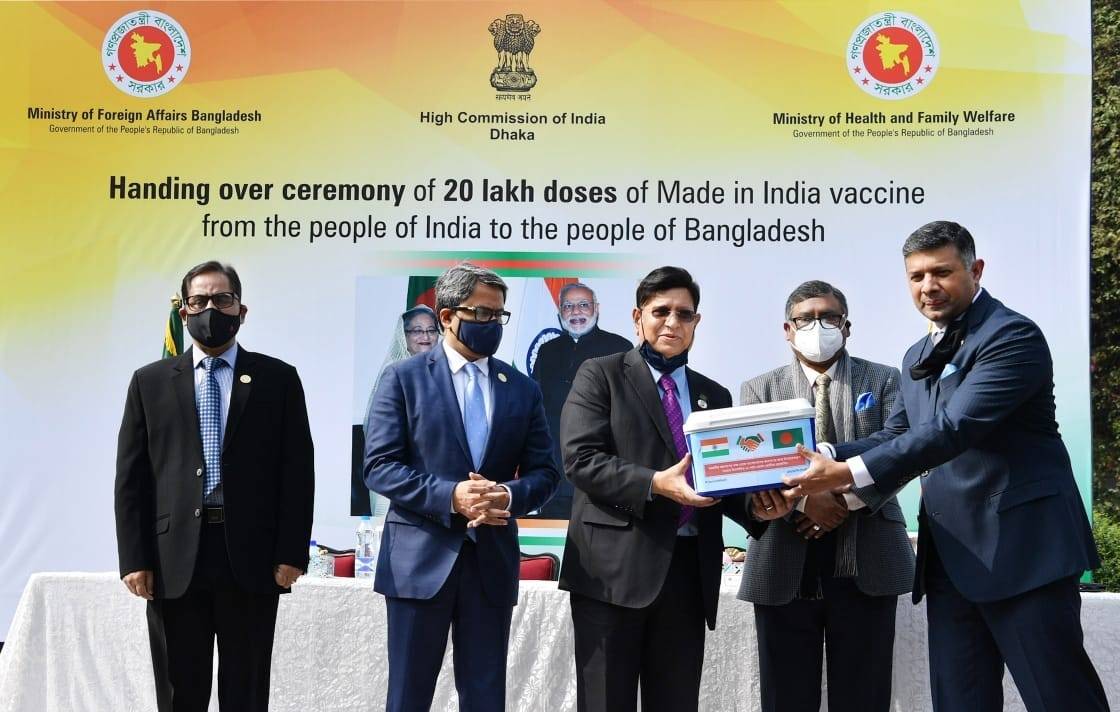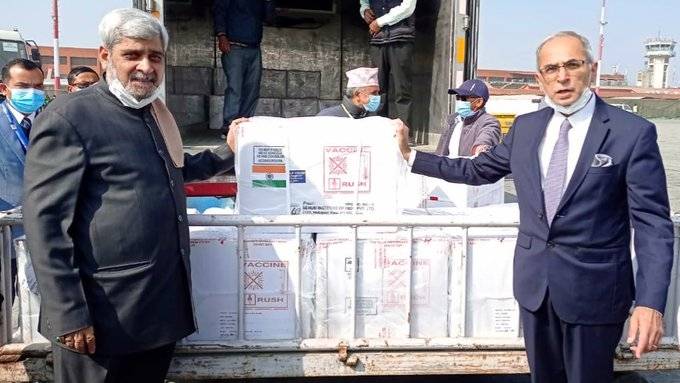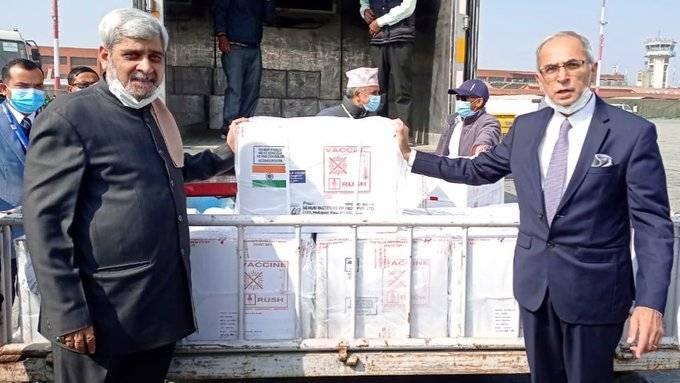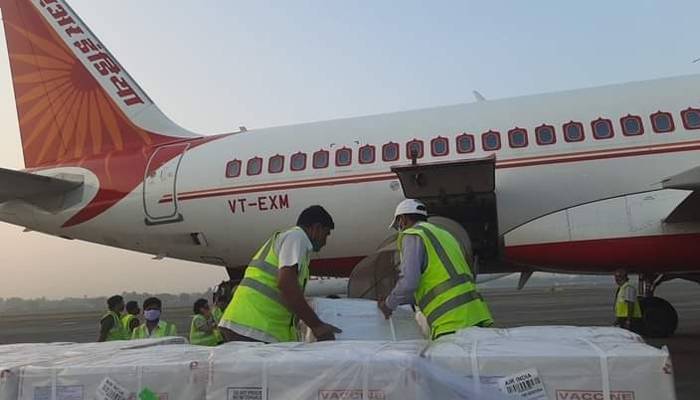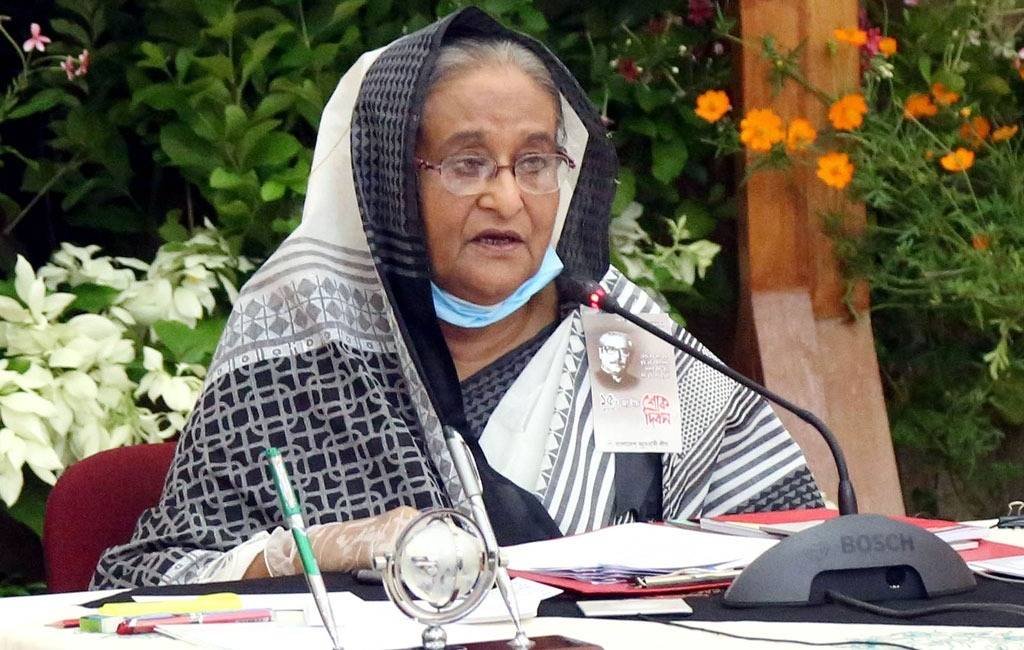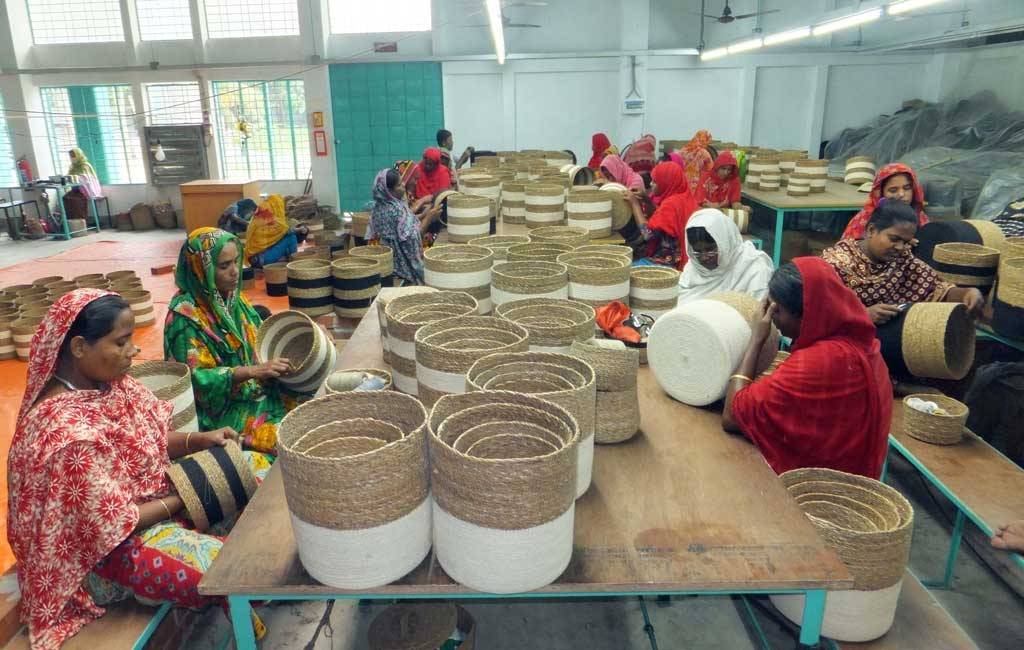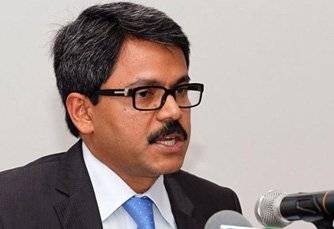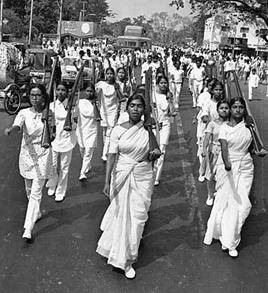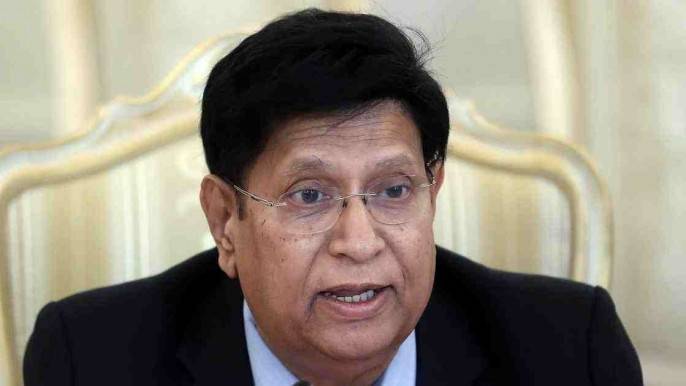Bangladesh Prime Minister Sheikh Hasina has thanked her Indian counterpart Narendra Modi for sending 20 lakh doses of Oxford-AstraZeneca Covid-19 vaccines to assist the country in its fight against the novel coronavirus…writes Sumi Khan.
“I’m thanking Prime Minister Modi for sending the vaccine as a gift, I do expect that Bangladesh will get rid of the Covid-19 pandemic,” Hasina said on Thursday while thanking Modi for sending the Covid-19 vaccines to Bangladesh.
Hasina and Modi also discussed the ongoing bilateral collaboration between the private sectors.
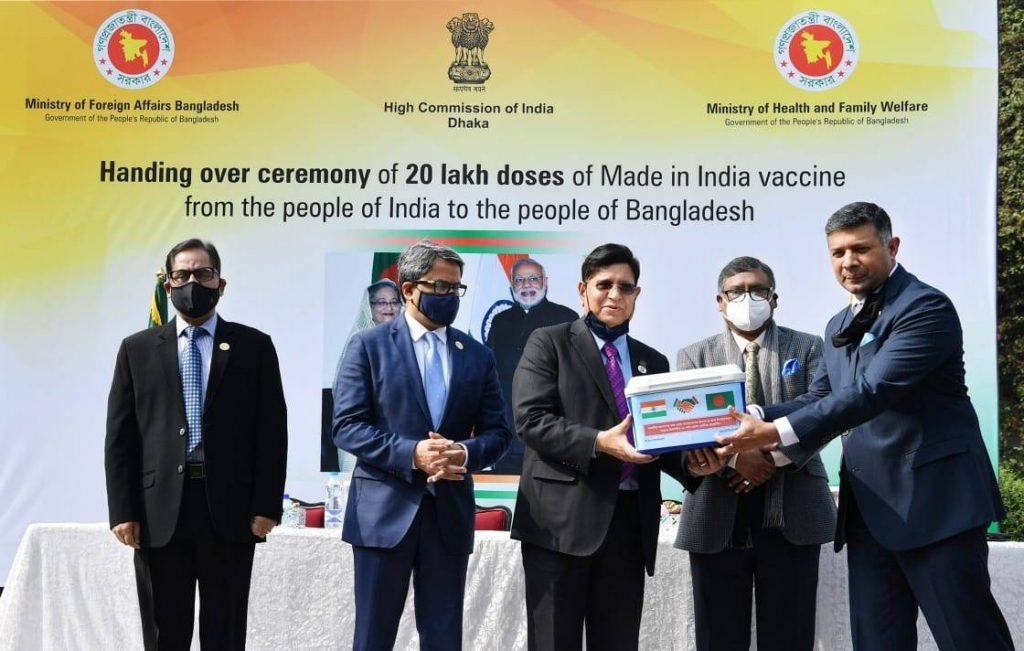
“We’ve taken all the steps to face the Covid-19 situation in the country,” she said.
Bangladesh has already planned to proceed with the vaccine, she said while virtually addressing an international conference on 100 Years of the University of Dhaka.
On Thursday afternoon, Indian High Commissioner to Bangladesh Vikram Kumar Doraiswami handed over the Covid-19 vaccine to Bangladesh Foreign Minister AK Abdul Momen and Health Minister Zahid Maleque.
Doraiswami said: “It is part of commitment made at the highest level — Bangladesh Prime Minister Sheikh Hasina and Indian Prime Minister Narendra Modi — and as part of ‘Neighbourhood First’ policy.”
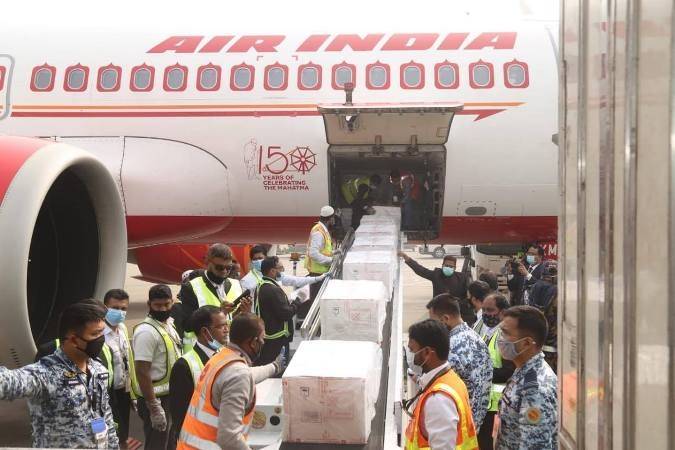
Indian External Affairs Minister S Jaishankar tweeted on “VaccineMaitri”, saying India reaffirms the highest priority to its relations with Bangladesh.
Doraiswami also said that Bangladesh and India will fight the disease together as friends.
At least 50 lakh doses of the vaccine from India are expected to arrive within this month while another 50 lakh doses of the vaccine are scheduled to arrive in each of the next six months as per the agreement.
On December 17 last year, Indian Prime Minister Modi assured that vaccines would be made available to Bangladesh as and when produced in India.
Abdul Momen said the arrival of 20 lakh doses of the vaccine from India shows the sign of strong relations and goodwill between Hasina and Modi.

“Today’s gift from India is the sign of partnership, cooperation and collaboration,” he said.
After receiving the Oxford-AstraZeneca vaccine as ‘gift’ from India, the Bangladesh Foreign Minister said: “It’s a historic day. They’ve (Hasina and Modi) achieved such a goodwill and strong relations! It shows the sign of that bonding.”
Momen said many developed countries are yet to get the vaccine and Bangladesh is one of its earliest recipients in the world.
Also Read-Llod Austin Asks For Deeper Defence Ties With India
Read More-Anthony Fauci Returns To WH

